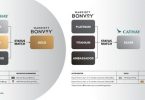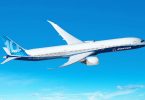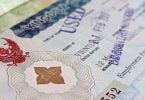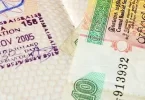Paul Hudson, President of FlyersRights.org is suggesting to those with airline reservations over Thanksgiving to make a back-up reservation.
He was a guest today at the BreakingNewsShow by eTurboNews and had a few tips for the 30 Million American travelers expected to get on airlines during the upcoming Thanksgiving week. In addition, millions will also travel internationally, and it’s important to be prepared to avoid problems.
Tips for Thanksgiving Travelers
- Book morning flights. If your flight gets canceled or delayed, you have time during the day to make alternate arrangements. It may avoid the need to be stranded at an airport overnight.
- If you really have to be somewhere on a specific day make a fully refundable backup reservation on another carrier. Of course, you cannot do this on the same airline you originally booked. This way if everything works out with your original plan, you just cancel and get your money back.
- Build in another day if you can. In case your flight gets delayed, you have more time to rebook and still arrive within the window you planned to arrive. This is especially true when you have to make a connection.
In the interview Paul Hudson discussed compensation. Laws and policies are very different in the United States and Europe. If your flight is delayed in Europe for just 3 hours, you may get up to $700.00 in mandatory compensation, but not so in the United States.
The Montreal Convention has policies in regard to delays and cancellations but makes it very difficult to enforce such rules.
Paul also discussed baggage delays or lost suitcases, compensation for it, and what you can do. A lost suitcase can pay a passenger about $800.00 on domestic, or $1700.00 on international flights.
Other rules deal with delays while a plane is on the tarmac. The three-hour rule requires air carriers to let passengers leave the plane after a three-hour taxi delay.
Also discussed is what to pack in a suitcase, and what to take onboard, such as medication, IDs, or other essential items.
Large planes such as the Airbus 380 or the Boeing 747 are becoming a glamor of the past with airlines now concentrating on point-to-point travel avoiding changes at hubs, but using smaller aircraft.
This is often not only less comfortable on the plane but also more risky. Smaller planes were not designed for long haul over water flights, and now they are, making an emergency landing more difficult – but saving the airlines big time on fuel.
Paul explained carriers in the US are really no longer competing with service, only with price. This means service is cut to the bare bone, and there is no legal way to complain if first-class travelers no longer get pillows or blankets, onboard entertainment, or premium food. Service competition only remains on some international routes.
The full interview will shed light on this and many more points and also explain what Flyersrights.org can do to help those passengers who have to deal with problems. Dealing with airline call centers often located in other countries and with contracted agents that have no authority to change anything is not always the best option.























